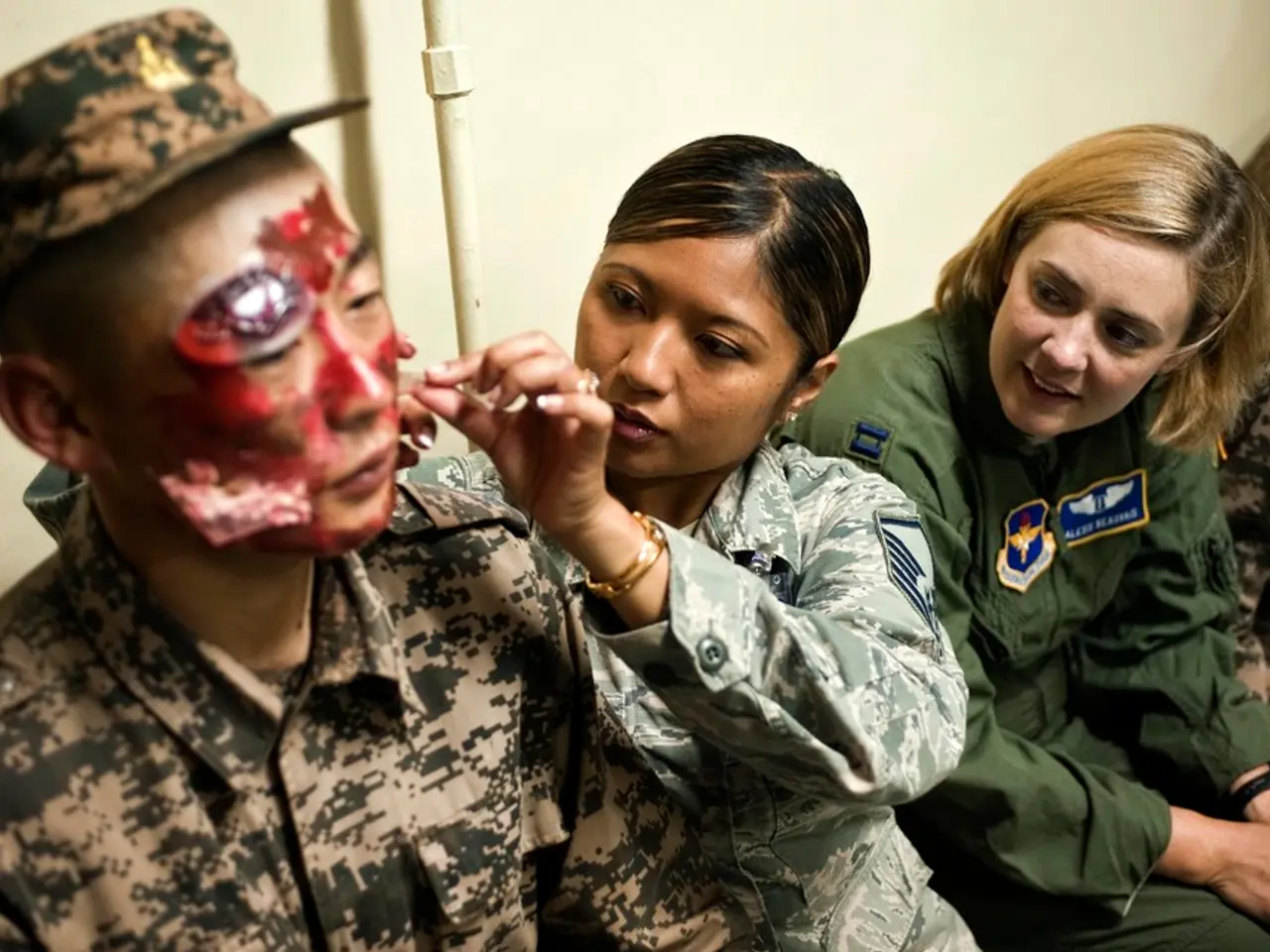Patient Stabs Krakow Doctor Dead during Medical Consultation
In a tragic incident that shook the healthcare community in Kraków, Poland, a 40-year-old orthopaedic doctor was fatally stabbed at the University Hospital in Kraków's orthopaedic outpatient clinic in 2025 [2]. The assailant, a 35-year-old resident of Jędrzejów County, was a former patient of the victim.
The attack took place during a scheduled appointment, with the assailant producing a knife and stabbing the doctor multiple times, causing serious injuries to the chest area [2]. Despite immediate and intensive surgical intervention, the doctor succumbed to his injuries.
The Kraków District Prosecutor's Office is leading the investigation and expects to formally charge the suspect with homicide on Wednesday [2]. The attack has sparked widespread public mourning and calls for improved safety measures for healthcare workers.
The incident has reignited discussions about the vulnerability of medical personnel to violence within clinical settings. Professor Andrzej Matyja, former president of the Supreme Medical Council, highlights that doctors are increasingly facing verbal and physical aggression [2]. Dr. Konstanty Szułdrzyński, an intensive care specialist, points out that the politicization and public criticism of medical workers contribute to an atmosphere where such attacks become more likely.
In response to the incident, there has been increased advocacy for improved security protocols in hospitals and clinics. Suggested measures include enhanced screening and monitoring of patients with prior aggressive behavior or mental health issues before appointments, the implementation of stricter access control within medical facilities, training healthcare workers in de-escalation techniques and self-defense, and possibly introducing security personnel presence during high-risk consultations.
The University Hospital's orthopaedic outpatient clinic has been temporarily closed for two days following the attack, and patients with upcoming appointments are being notified and rescheduled accordingly. Medical associations and professional bodies are renewing calls for the government to introduce stronger protective measures for healthcare workers.
Growing demands for better security in hospitals and stricter penalties for violence against medical staff echo the urgent need to safeguard healthcare professionals and prevent further tragedies. Authorities and health officials emphasize that this must become a national priority to ensure the safety and well-being of those who dedicate their lives to healing others.
- The government should consider implementing stricter laws to penalize violence against medical staff, as the need for enhanced safety measures in hospitals is becoming increasingly urgent.
- Recent scientific studies suggest that artificial intelligence could play a significant role in improving healthcare, including predicting medical-conditions and helping in diagnostics, but its application should also consider protecting healthcare workers from potential threats.
- A tragedy transpired in the space of Kraków, Poland, when a 40-year-old orthopaedic doctor was fatally stabbed, sparking general news about the rising concerns for the safety of healthcare workers in clinical settings.
- On a broader scale, the Crime and Justice department should conduct research on the underlying causes of attacks against healthcare personnel and develop targeted solutions to reduce incidents like the one that took place in the orthopaedic outpatient clinic of the University Hospital in Kraków.
- Many health and wellness experts advocate for health-and-wellness programs for healthcare workers to address the stress and burnout they face daily, in addition to implementing enhanced security protocols to help ensure their safety.
- Warning signs of aggressive behavior or mental health issues should be carefully monitored among patients, as they could pose a threat to healthcare workers, following the tragic death of the orthopaedic doctor at the University Hospital in Kraków, Poland, in 2025.




